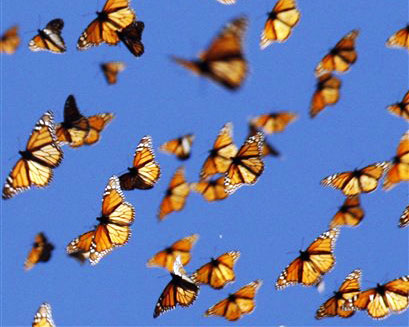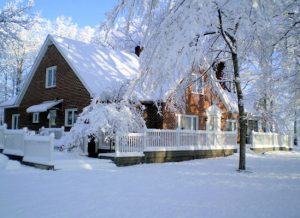Winter is just around the corner. We’ve already experienced colder than normal temperatures in Little Rock, Cabot, Conway, and all over the Natural State. When the weather outside gets frightful, where do the bugs go? The cold can definitely slow insects down, making them easier prey. Plus, the freezing temperatures can kill them.
So how do these bugs cope with the cold? At Clark Exterminating, we realize that different bugs have different ways of handling the cold, and here are a few:
Hibernation
Some bugs hibernate or fall into a deep sleep through the winter by hiding in places like under rocks, fallen logs, or tree bark. Since insects are cold-blooded, these bugs go dormant in the winter and then wake up in the spring. This sleep can also be known as diapause, which can occur at different phases of life. Many of the insects that go into diapause are eggs and pupae awaiting the arrival of spring before hatching into adults. Ants, for example, spend all winter in their nests underground. Insects like ladybugs, wasps, and yellow jackets could find warm shelter in or around your house in attics or in the eaves of the house.
Migration
Some insects just head to warmer climates or better conditions for the winter. The Monarch butterfly is probably the most well-known migrating insect. They fly up to 2,000 miles to spend their winter in Mexico. Other butterflies and moths migrate seasonally. The insects will return in the spring when the temperature is warmer.
Insects like honeybees find strength in numbers. They huddle together and use their collective body heat to keep themselves warm. The bees take turns enjoying the warmth in the middle and then move to the outside. Ants and termites head below the frost line where their large numbers and stored food help them last all winter long.
Many insects prepare for the cold by making their own antifreeze. During the fall, these bugs will produce glycerol that gives the insect body supercooling ability. It allows body fluids to drop below freezing points without causing damage. The bugs become colder tolerant and protect tissues and cells.Aquatic insects like mayflies and dragonflies winter as nymphs (an immature stage resembling the adult stage). They feed actively and grow all winter to emerge as adults in the spring. These insects are able to micro-migrate to warmer water within their environments, and some may even develop some antifreeze also.
If you find pests taking advantage of your warm home during the frigid temperatures, don’t hesitate to call Clark Exterminating to help you! Contact us at (501) 588-2514 for our Little Rock office or (501) 776-1388 in Benton. We will make sure bugs don’t find a safe, cozy haven in your home this winter.




